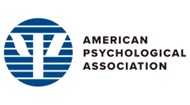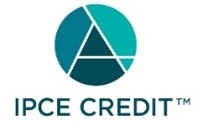
Learning Disorders (April 2025)
Registration Deadline: April 21, 2025
Learning disorders are one of the most common neurodevelopmental disorders and have a significant impact on psychosocial functioning. Individuals with learning disorders are at greater risk for psychiatric disorders (e.g., depression, anxiety), as well as other neurodevelopmental disorders (e.g., attention deficit hyperactivity disorder), and neurological conditions (e.g., epilepsy). They are also at greater risk of diminished educational, occupational, and financial gains, as well as incarceration, especially for those impacted by racial and economic disparities.
Within the last 20 years, there have been substantial scientific gains in understanding the genetic and environmental factors that lead to specific atypical patterns of brain development that are associated with learning disorders. We have also made gains in characterizing the profiles of youth with learning disorders to enable early identification and intervention. In this course, we review this information for each of the major learning disorders, including dyslexia, dyscalculia, and dysgraphia. We also discuss learning disorders that are less well understood, including slow processing speed and nonverbal learning disorder.
For each disorder, we present real-world clinical scenarios to illustrate the diagnostic hallmarks and associated signs and symptoms. We discuss neuropsychological profiles associated with each disorder, common comorbidities, and their developmental progression, including what might be expected with appropriate intervention. We discuss diagnostic challenges and how eligibility for special education services and accommodations in school is determined.
Course materials are available beginning April 7, 2025, and all coursework must be completed by June 9, 2025
Pricing
Registration Deadline: April 21, 2025
Physicians and Doctoral-level Professionals: $445.00
Other Professionals: $345.00
Cancellation Policy
Refunds will be issued for cancellation requests made during the first week of the course, but an administrative fee of $25.00 will be deducted from your refund. Cancellation requests made during the second week will receive credit toward a future offering of the same course. No refunds or credits will be granted after April 21, 2025.
Q&A Schedule
Week Start Date | Date of Q&A | Time of Q&A | Faculty Name |
Week 1: 4/7/2025 | 4/9/2025 | 8:30-9:00AM EDT | Molly Colvin, PhD |
Week 2: 4/14/2025 | 4/16/2025 | 8:30-9:00 AM EDT | Ellen Braaten, PhD |
Week 3: 4/21/2025 | 4/23/2025 | 8:30-9:00 AM EDT | Ellen Braaten, PhD |
Week 4: 4/28/2025 | 4/30/2025 | 8:30-9:00 AM EDT | Ellen Braaten, PhD |
Week 5: 5/5/2025 | 5/7/2025 | 8:30-9:00 AM EDT | Ellen Braaten, PhD |
Week 6: 5/12/2025 | 5/14/2025 | 8:30-9:00 AM EDT | Molly Colvin, PhD |
Target Audience
This program is intended for:
- Psychologists
- Psychiatrists
- Pediatricians
- Mental Health Professionals
- Teachers
- Educators
Learning Objectives
By the end of this program, participants will be able to:
Unit 1:
- The participants will be able to define and describe the most commonly occurring learning disabilities in children and adolescents.
- The participants will be able to articulate the most commonly occurring warning signs of learning disabilities.
- The participants will gain an understanding of the relationship between brain development and learning disorders.
Unit 2:
- The participants will be able to define and describe at least 3 of the signs and symptoms of dyslexia.
- The participants will be able to identify and describe at least 2 new findings from current research in dyslexia.
- The participants will identify 2 of the neurobiological influences of dyslexia.
- The participants will be able to identify and summarize the most effective treatments and accommodations for students with dyslexia throughout their lifespan.
Unit 3:
- The participants will be able to define and describe at least two signs and symptoms of dysgraphia.
- The participants will be able to identify and describe the neurobiological influences of dysgraphia.
- The participants will be able to identify and summarize the most effective treatments and accommodations for students with dyscalculia across the lifespan.
Unit 4:
- The participants will be able to define and describe at least two signs and symptoms of dyscalculia.
- The participants will be able to identify and describe the neurobiological influences of dyscalculia.
- The participants will be able to identify and summarize the most effective treatments and accommodations for students with dyscalculia across the lifespan.
Unit 5
- Participants will define and describe at least three symptoms and signs of a nonverbal learning disability.
- Participants will define and describe the construct of processing speed and its relationship to learning disabilities.
- Participants will identify the symptoms of ADHD and describe its relationship to learning disabilities.
Unit 6:
- Participants will be able to describe a 504 plan and an individualized education program (IEP).
- Participants will describe when it is appropriate to refer a child for neuropsychological assessment.
- Participants will identify and describe three neurological/genetic and three neurodevelopmental/neuropsychiatric disorders that are frequently comorbid with learning disabilities.
Accreditation
In support of improving patient care, MGH Institute of Health Professions is jointly accredited by the Accreditation Council for Continuing Medical Education (ACCME), the Accreditation Council for Pharmacy Education (ACPE), and the American Nurses Credentialing Center (ANCC) to provide continuing education for the healthcare team.
10.50 Psychologists

Continuing Education (CE) credits for psychologists are provided through the co-sponsorship of the American Psychological Association (APA) Office of Continuing Education in Psychology (CEP). The APA CEP Office maintains responsibility for the content of the programs. MGH Institute of Health Professions designates this activity for 10.50 CE credit.
10.50 Physicians
MGH Institute of Health Professions designates this live activity for a maximum of 10.50 AMA PRA Category 1 Credits ™. Physicians should claim only credit commensurate with the extent of their participation in this activity.
10.50 Nursing Contact Hours
MGH Institute of Health Professions designates this activity for 10.50 contact hours for nurses.
10.50 Social Workers

As a Jointly Accredited Organization, the MGH Institute of Health Professions is approved to offer social work continuing education by the Association of Social Work Boards (ASWB) Approved Continuing Education (ACE) program. Organizations, not individual courses, are approved under this program. State and provincial regulatory boards have the final authority to determine whether an individual course may be accepted for continuing education credit. MGH Institute of Health Professions maintains responsibility for this course. Social workers completing this course receive 10.50 clock hours for continuing education credits.
10.50 IPCE Credit

This activity was planned by and for the healthcare team, and learners will receive 10.50 Interprofessional Continuing Education (IPCE) credits for learning and change.
Program Agenda
Participants must complete each week sequentially and while completing all components of each week to receive credit, including:
- Video Lecture (with slides)
- Discussion Board
- Q&A with Faculty
- Quiz Assessment
Unit 1: What are Learning Disorders?
Molly Colvin, PhD ABPP
Unit 2: Reading Disorders/Developmental Dyslexia
Ellen Braaten, PhD
Unit 3: Writing Disorders/Developmental Dysgraphia
Ellen Braaten, PhD
Unit 4: Math Disorders/Developmental Dyscalculia
Ellen Braaten, PhD
Unit 5: New Directions in Learning Disorders Research
Ellen Braaten, PhD
Unit 6: Additional Factors to Consider in Treatment and Management
Molly Colvin, PhD ABPP
Course Directors
Molly Colvin, MD, ABPP
Ellen Braaten, PhD
Content Reviewers
David Rubin, MD
Susan Kim, MD
Susan Sprich, PhD
Planners
Jane Pimental, MPH
Speakers
Molly Colvin, MD, ABPP
Ellen Braaten, PhD
Available Credit
- 10.50 AMA PRA Category 1 Credit™
This activity has been planned and implemented in accordance with the accreditation requirements and policies of the Accreditation Council for Continuing Medical Education (ACCME) through the joint providership of IHP and Massachusetts General Hospital. IHP is accredited by the ACCME to provide continuing medical education for physicians.
IHP designates this Enduring activity for a maximum of 10.50 AMA PRA Category 1 Credit™. Physicians should only claim credit commensurate with the extent of their participation in the activity.
- 10.50 Nursing Contact Hours
Massachusetts General Laws, Chapter 13, sections 13, 14, 14A, 15 and 15D and Chapter 112, sections 74 through 81C authorize the Board of Registration in Nursing to regulate nursing practice and education.
This program meets the requirements of the Massachusetts Board of Registration in Nursing (244 CMR 5.00) for 10.50 contact hours of nursing continuing education credit. Advance practice nurses, please note: Educational activities which meet the requirements of the ACCME (such as this activity) count towards 50% of the nursing requirement for ANCC accreditation.
- 10.50 Social Workers
As a Jointly Accredited Organization, the MGH Institute of Health Professions is approved to offer social work continuing education by the Association of Social Work Boards (ASWB) Approved Continuing Education (ACE) program. Organizations, not individual courses, are approved under this program. State and provincial regulatory boards have the final authority to determine whether an individual course may be accepted for continuing education credit. MGH Institute of Health Professions maintains responsibility for this course. Social workers completing this course receive 10.50 clock hours for continuing education credits.
- 10.50 Participation
This course allows other providers to claim a Participation Certificate upon successful completion of this course.
Participation Certificates will specify the title, location, type of activity, date of activity, and number of AMA PRA Category 1 Credit™ associated with the activity. Providers should check with their regulatory agencies to determine ways in which AMA PRA Category 1 Credit™ may or may not fulfill continuing education requirements. Providers should also consider saving copies of brochures, agenda, and other supporting documents.
- 10.50 Psychologists CE Credit
Continuing Education (CE) credits for psychologists are provided through the co-sponsorship of the American Psychological Association (APA) Office of Continuing Education in Psychology (CEP). The APA CEP Office maintains responsibility for the content of the programs. MGH Institute of Health Professions designates this activity for 10.50 CE credit.

 Facebook
Facebook X
X LinkedIn
LinkedIn Forward
Forward